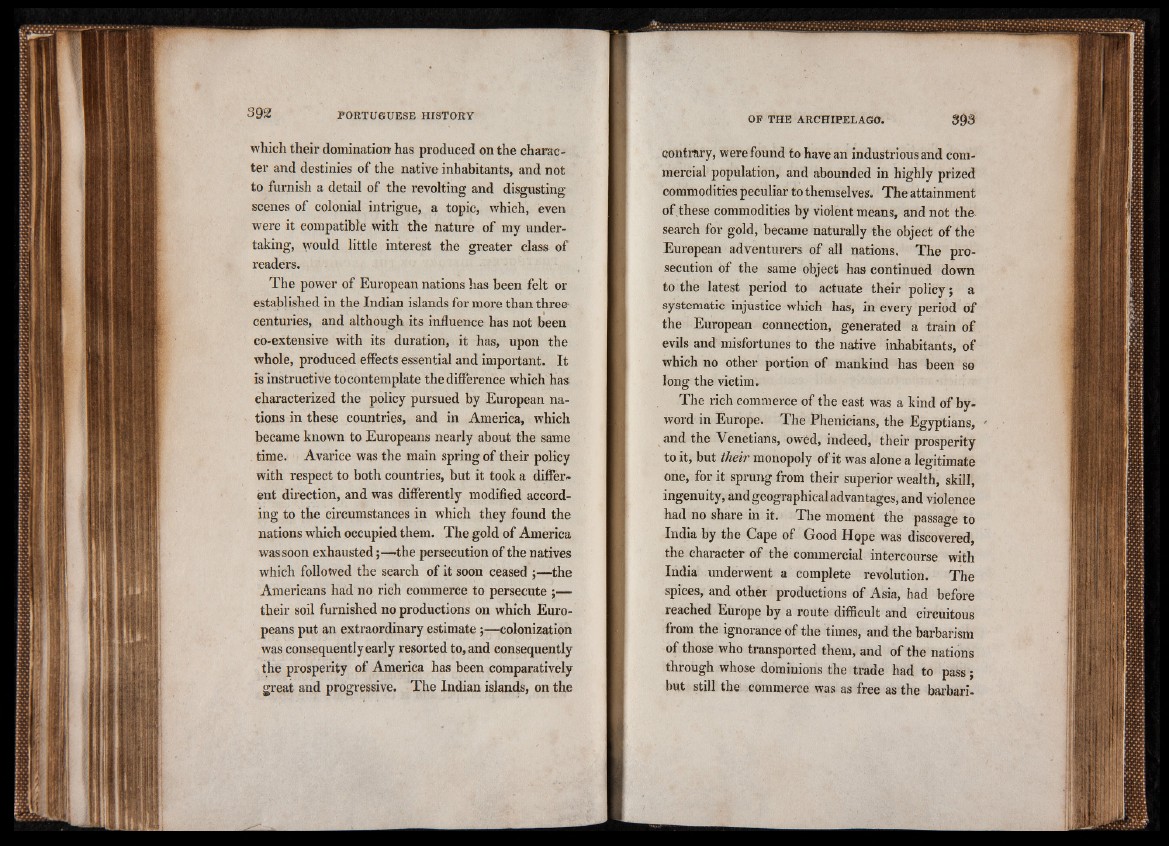
which their domination has produced on the character
and destinies of the native inhabitants, and not
to furnish a detail of the revolting and disgusting
scenes of colonial intrigue, a topic, which, even
were it compatible with the nature of my undertaking,
would little interest the greater class of
readers.
The power of European nations has been felt or
established in the Indian islands for more than three*
centuries, and although its influence has not been
co-extensive with its duration, it has, upon the
whole, produced effects essential and important. It
is instructive to contemplate the difference which has
characterized the policy pursued by European nations
in these countries, and in America, which
became known to Europeans nearly about the same
time. Avarice was the main spring of their policy
with respect to both countries, but it took a different
direction, and was differently modified according
to the circumstances in which they found the
nations which occupied them. The gold of America
was soon exhausted ;—the persecution of the natives
which followed the search of it soon ceased ;—the
Americans had no rich commerce to persecute j—
their soil furnished no productions on which Europeans
put an extraordinary estimate ;—colonization
was consequently early resorted to, and consequently
the prosperity of America has been comparatively
great and progressive. The Indian islands, on the
contrary, were found to have an industrious and commercial
population, and abounded in highly prized
commodities peculiar to themselves. The attainment
of these commodities by violent means, and not the
search for gold, became naturally the object of the
European adventurers of all nations. The prosecution
of the same object has continued down
to the latest period to actuate their policy; a
systematic injustice which has, in every period of
the European connection, generated a train of
evils and misfortunes to the native inhabitants, of
which no other portion of mankind has been so
long the victim.
The rich commerce of the east was a kind of byword
in Europe. The Phenicians, the Egyptians,
and the Venetians, owed, indeed, their prosperity
to it, but their monopoly of it was alone a legitimate
one, for it sprung from their superior wealth, skill,
ingenuity, and geographical advantages, and violence
had no share in it. The moment the passage to
India by the Cape of Good Hope was discovered,
the character of the commercial intercourse with
India underwent a complete revolution. The
spices, and other productions of Asia, had before
reached Europe by a route difficult and circuitous
from the ignorance of the times, and the barbarism
of those who transported them, and of the nations
through whose dominions the trade had to pass;
but still the commerce was as free as the barbari